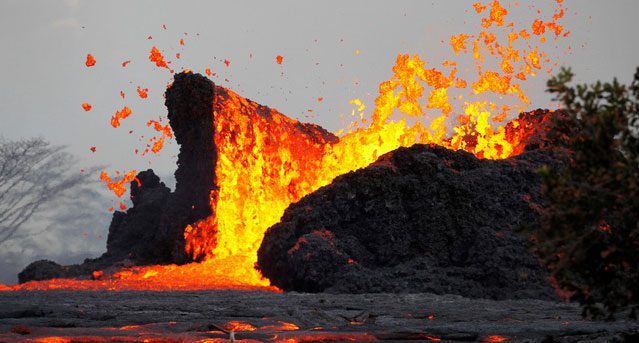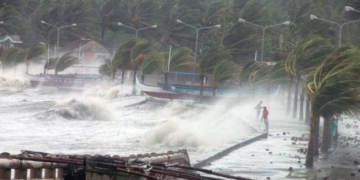According to scientists, volcanoes will eventually become a thing of the past on Earth, as the planet appears to continue cooling over time.
According to the United States Geological Survey, there are approximately 1,350 “potentially active volcanoes worldwide.” Just over one-third of these have erupted at some point recorded in history.

Kilauea Volcano in Hawaii (USA) – (Photo: THE NEW YORK TIMES)
Ed Llewellin, a volcanologist at Durham University in the UK, told Live Science: “Most of the volcanoes on the planet are underwater, along the 65,000 km long mid-ocean ridge system. About 80% of the Earth’s magma output comes from volcanoes along these ridges, which are often 3 to 4 km below the ocean surface.”
He noted that these underwater volcanoes can be forgotten, as they lie deep beneath the ocean surface, meaning their eruptions rarely affect us.
But what about the volcanoes on the ocean surface? Llewellin explained: “Among the land volcanoes, many are located around the Pacific Ocean. This area is surrounded by “subduction zones,” located around the edges of tectonic plates, where one plate slides beneath another.”
Due to this tectonic activity, the Pacific Ocean is home to the Ring of Fire. This is a 40,000 km long seismic belt, shaped like a horseshoe, which is the epicenter of about 90% of the world’s earthquakes.
However, due to the nature of tectonic activity, the Pacific is not always a volcanic hotspot.
Throughout Earth’s history, the frequency of volcanic activity has gradually decreased. “The early Earth was much hotter than it is today – to the point where we think there were periods when the entire surface of the Earth was covered in a magma ocean,” Llewellin said.
The Earth is now much cooler and more hospitable than during its magma ocean period. According to Llewellin, volcanoes will ultimately become a thing of the past on our planet as Earth seems to continue cooling over time.
“This has happened on the Moon. The Moon is much smaller than Earth, so it cools down faster,” Llewellin explained.
However, it seems unlikely that volcanoes will disappear anytime soon. In fact, some experts have suggested that it could take 91 billion years for the Earth’s core to lose all its heat, meaning that volcanoes may outlast humanity.
|
If you want to witness a real volcanic eruption, you can visit Stromboli – a small island off the coast of Italy. It has been erupting almost continuously for the past 1,500 years or more. If you join a guided tour to the volcano, you will likely see one of the small eruptions produced by the volcano every few minutes from one of the many vents near the summit. |


















































